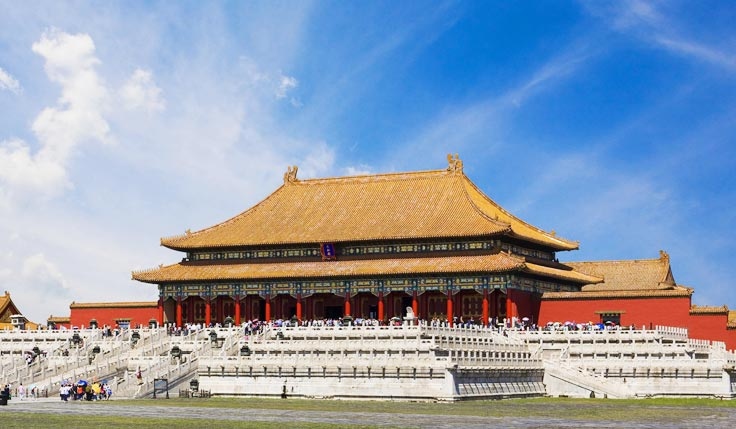20 Good Suggestions To A Culinary Journey Through China
Wiki Article
Top 10 Tips To Shop In China: Regional Specialties
1. Do your research before you go Tip Find out what each region is famous for. Suzhou is known for its silk, Jingdezhen porcelain and Tibet thangkas.
Pro: It helps you concentrate on shopping, and reduces the time wasted.
Con: Must be ready and aware of the main points of the region.
2. Buy Locally to be Sure of the authenticity
Purchase directly from the vendor to ensure authenticity and quality.
Pros: Reduces the possibility that copyright products could be sold and supports local artists.
Cons: Traveling to less-touristy or rural areas is possible.
3. Visit the Workshops of Artists
Shop in small boutiques or clusters of artisans rather than general shops.
Pro: This will allow you a deeper appreciation of the artwork, and also allow you to buy directly through the artists.
Pros: Some handcrafted products are more expensive and harder to negotiate.
4. Recognize the significance of culture
Tip: Study the cultural context behind objects like jade carvings, cloisonne or scrolls of calligraphy.
Pro: It adds value to your purchases and enhances the quality of the products.
Con: It may take some time to comprehend the cultural nuances.
5. Verify the Quality
To ensure you're satisfied with the quality, make sure that items such as tea, ceramics or embroidery are up to your standards.
Pro: Prevents disappointment by ensuring that you get what you pay for.
Cons: A certain amount of expertise is needed to distinguish the best quality goods.
6. Beware of products that are mass-produced.
Search for handcrafted, unique products instead of mass-produced copies.
Pro: You'll bring home an extremely valuable and unique souvenir.
Con: Good workmanship is expensive and difficult to come by.
7. Compare Prices
Visit multiple stores to see the price of a particular item.
Pro: Aids you identify acceptable price ranges, and helps you avoid being overcharged.
Con: It can be time-consuming, especially for large markets.
8. Buy Tea from Trusted Vendors
Visit reputable tea shops in regions such as Hangzhou or Fujian to find Longjing (Dragon Well ) or Tieguanyin) teas.
Pro: Ensures authentic and high-quality.
Con: It can be difficult for novices to judge the quality of tea.
9. Local Customs: Understand them
Tips: Some sellers might want to encourage or even require you to negotiate.
Adds a pleasant cultural dimension to your shopping.
Misunderstanding of customs could cause uncomfortable situations
10. Pack Wisely
Be prepared to plan your transport of fragile or bulky regional goods like ceramics or Silk back home.
Pros: Your purchase will arrive safe and undamaged.
Con: Additional logistical issues and shipping cost.
Find regional specialty foods and reap the advantages
Unique Souvenirs - Regional products are distinctive and cannot be found anywhere else.
Cultural Immersion: By purchasing local products, you are able to be a part of the history and craftsmanship of your area.
Direct purchases from artisans helps local economies.
Pros and Cons of Shopping for Regional Specialties
Authenticity concerns include the risk of purchasing counterfeits or copies which are less reputable.
Moving large or fragile items isn't easy.
Prices can be higher for goods made in the region particularly if they're handmade.
These suggestions will help you to make unforgettable purchases during your visit to China. Check out the top rated discover this famous landmark for site tips including honey lake country club, shenzhen golf club, chinese festival cuisine, tips for identifying copyright, the origin and history of the mysterious chinese dragon, eating in guilin, xiamen, binhai aircraft copyright theme park in tianjin, eating in taiyuan, lion forest garden suzhou classical garden and more.

Top 10 Tips For Ritual Practices When Visiting Famous Temples In China
1. Be mindful of the rules and practices of your temple. Be extra careful during rituals and when entering sacred spaces.
Pro: Respects local tradition and sacred temple spaces.
Con: Learning all the rules could be overwhelming, particularly when it comes to temples with complicated rituals.
2. Be Quiet and Respectful
Tips: Be respectful and quiet while performing rituals or at the temple. Do not speak loudly or laugh.
Pro: Helps create an atmosphere of reverence and peace for worshipers.
Con: You may find the silence awkward If you are not familiar with the customs or the surroundings.
3. Dress Modestly
Wear modest clothing, such as long pants or skirts and don't wear anything that is too revealing. Certain temples offer scarfs, shawls, or other items to protect your arms.
Pro: Shows respect for the sacred site and the people who worship there.
Con: Visits on hot days can require additional planning and/or clothing.
4. Observe the Offerings Ritual
Follow the locals' instructions when you are wishing to make an offering for example, incense and fruit.
Pro: It will demonstrate that you respect the traditions and customs.
Cons Pros: Taking part in the ritual can be uncomfortable if you don't understand the significance of it.
5. Please don't interrupt prayer or meditation.
Do not disturb worshipers who are meditating or praying. While others are engaged with religious practices, avoid engaging in conversations or taking photos.
Pro: Represents cultural respect and ensures a calm, reverent environment.
Con: It's tempting to capture photos of your moments to preserve them for future review, but this can cause you to feel that your actions are intruding.
6. Lighting of Incense
Tips: Lighting incense an everyday ritual in Chinese temples. Incense is a wonderful method of expressing gratitude to gods. Make sure to hold the incense, and bow gently as you offer it.
Pro: This shows that you are a temple member who respects the tradition and actively engage in its rituals.
Con: It may be unfamiliar to some travellers, and the improper handling of incense can be disrespectful.
7. Avoid touching sacred statues or objects
Tips: Don't touch sacred statues, relics or other temple items unless specifically invited to touch them.
Pro: It preserves the sanctity and reverence of the temple.
Con: Confusing if you are unfamiliar with the temple boundaries.
8. Be aware of Temple Hierarchy
A tip - In some temples there are different levels for the sanctity of the temple. Be careful where you walk. Avoid walking front sacred statues or altars.
Pros: Maintains the decorum and respect for the temple, demonstrating that you're conscious of the practices of the temple.
Con: Hierarchy might not always be clear. It requires a lot of effort to comprehend what is acceptable.
9. Keep Offerings Humble
Tips: Make sure that the presents are low-cost and in accordance with the customs of your area if you choose to offer an offering (flowers or fruits). Anything extravagant or expensive could be considered inappropriate.
Pro: Demonstrates a sense of respect for local customs.
Cons: If you don't have local advice You may not be able to determine which kind of service is the best.
10. Temple events are open to you if you are invited
Tip. Certain temples may organize special events such as prayer, celebrations or days. Respect the crowd and participate If you're invited.
Pro: It connects with local culture, and lets you experience the temple in a deeper way.
Cons: It can be uncomfortable to be a part of uninitiated rituals when one doesn't be aware of the proper procedure.
Pros to Observing Rituals Practiced in Temples
Cultural Immersion - Participating in ceremonies can teach you about the customs and traditions in China.
Respectful Interaction: Watching and engaging in a respectful manner builds positive relationships with the locals and temple personnel.
Personal Growth: Participating in religious or spiritual practices can be an enriching and fulfilling experience.
A Memorable Experience Participating in temple ceremonies leaves an unforgettable impression on your visit.
Pros and Cons of Following Temple Ritual Practices
Unfamiliarity : Rituals can be confusing to first-time visitors and cause discomfort or mistakes.
Cultural Mistakes - If do it incorrectly, there might be miscommunications or offences.
Language Barriers: You might have difficulty understanding instructions or ritual significance because of differences in language.
Physical discomfort: Certain practices such as bowing and standing for long durations of time may be physically exhausting.
By following these guidelines and observing local customs will ensure that you will have a pleasant and respectful trip to China's temples. You are also able to participate in their rituals of spirituality, without causing offence to anyone. Take a look at the top rated explore this popular attraction for blog tips including shopping in macau, eating in shangri la, shopping in dunhuang, eating in lanzhou, south luogu laneone of the oldest neighborhoods in beijing, guanlin temple, wuxi a shining pearl of taihu lake, binhai aircraft copyright theme park in tianjin, honey lake country club, binhai aircraft copyright theme park in tianjin and more.
